A Level Computer Science
Why should I study A Level Computer Science?
![]()
So many things in our lives have all been turned upside down by computer science. It touches our lives daily; from the cars we drive, to the movies we watch, to the way businesses and governments deal with us. It is about understanding problems, how computers work and the systems they run.
The computing sector is always in demand. Energy tech, software, digital content/media & entertainment, and medical devices are the four sectors generating the fastest growing businesses over the last three years (Source: Deloitte).
Computer Science is a practical subject where students can apply the academic principles learned in the classroom to real-world systems.
Studying this subject will enable you to: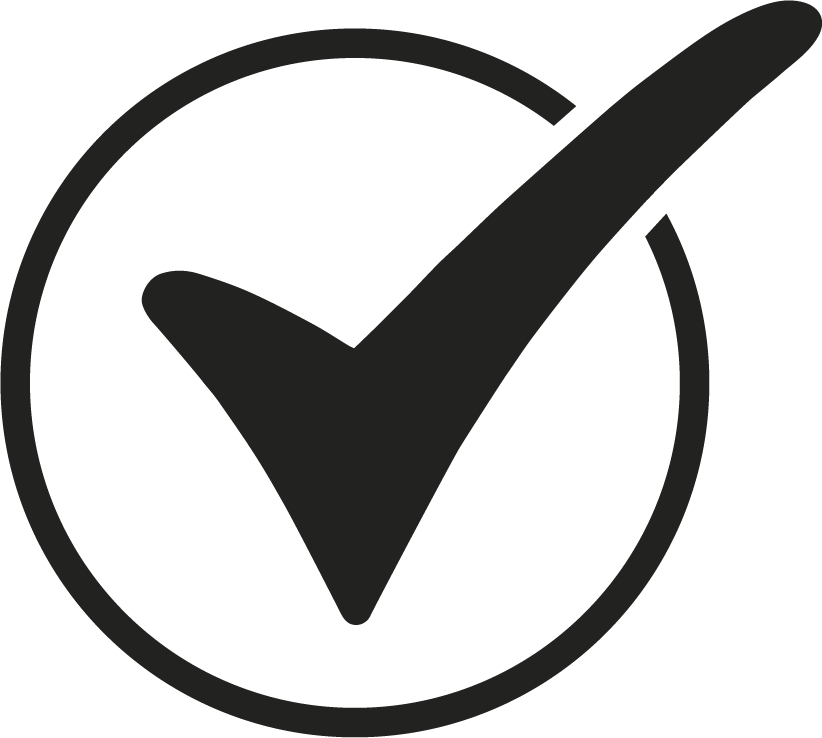
- Develop an understanding of and ability to apply the fundamental principles and concepts of computer science.
- Develop the ability to analyse problems in computational terms through practical experience of solving such problems including writing programs.
- Develop the capacity to think creatively, innovatively, analytically, logically and critically.
- Develop the capacity to see relationships between different aspects of computer science.
- Understand the power and limits of human and machine intelligence.
Course Specification
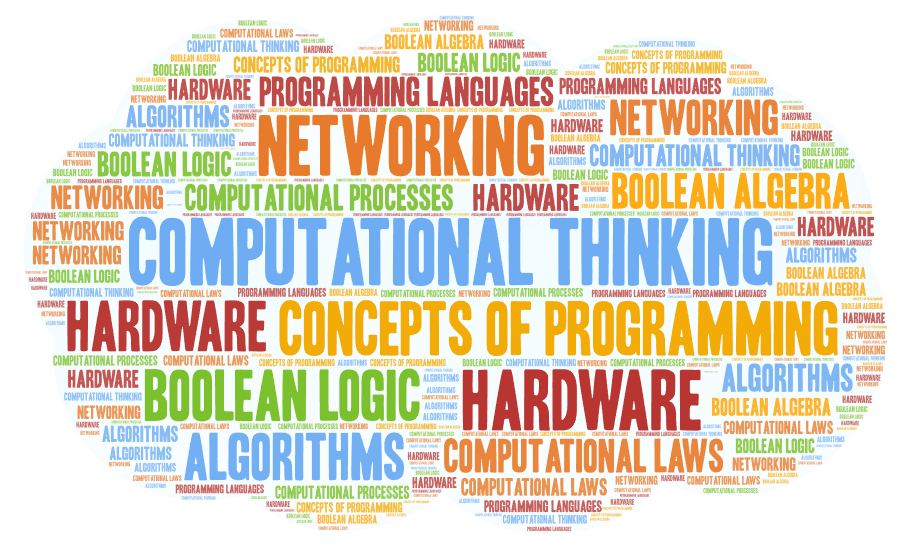
Computer Science is about computational thinking: a style of reasoning used by both humans and machines. There is an emphasis on problem-solving, application of knowledge and skills development.
Students taking Computer Science will study the technical aspects of hardware and networking, alongside concepts of programming. This subject is not about simply learning to use tools, or training in a programming language. It enables students to think creatively, innovatively, analytically, logically and critically.
Students will develop the capacity to see relationships between different aspects of computer science. The qualification will also develop students’ mathematical skills used to express computational laws and processes, such as Boolean algebra/logic and comparison of the complexity of algorithms.
Course Content
1. Computer Systems
You will be introduced to the internal workings of the Central Processing Unit (CPU), the exchange of data and will also look at software development, data types and legal and ethical issues including:
- Components of a computer and systems software
- Types of programming languages
- Data types, representation and structures
- Exchanging data and web technologies
- Following algorithms
- Using Boolean algebra
- Legal, moral and ethical issues
2. Algorithms and Programming
This component will incorporate and build on the knowledge and understanding gained in the Computer Systems component. Additionally, you should understand what is meant by computational thinking, the benefits of applying computational thinking to solving a wide variety of problems, and the principles of solving problems by computational methods. You should be able to use algorithms to describe problems and analyse a problem by identifying its component parts.
3. Programming Project
The A Level Programming Project gives you the opportunity to go through the process of developing a substantial piece of software.
Examining Board Information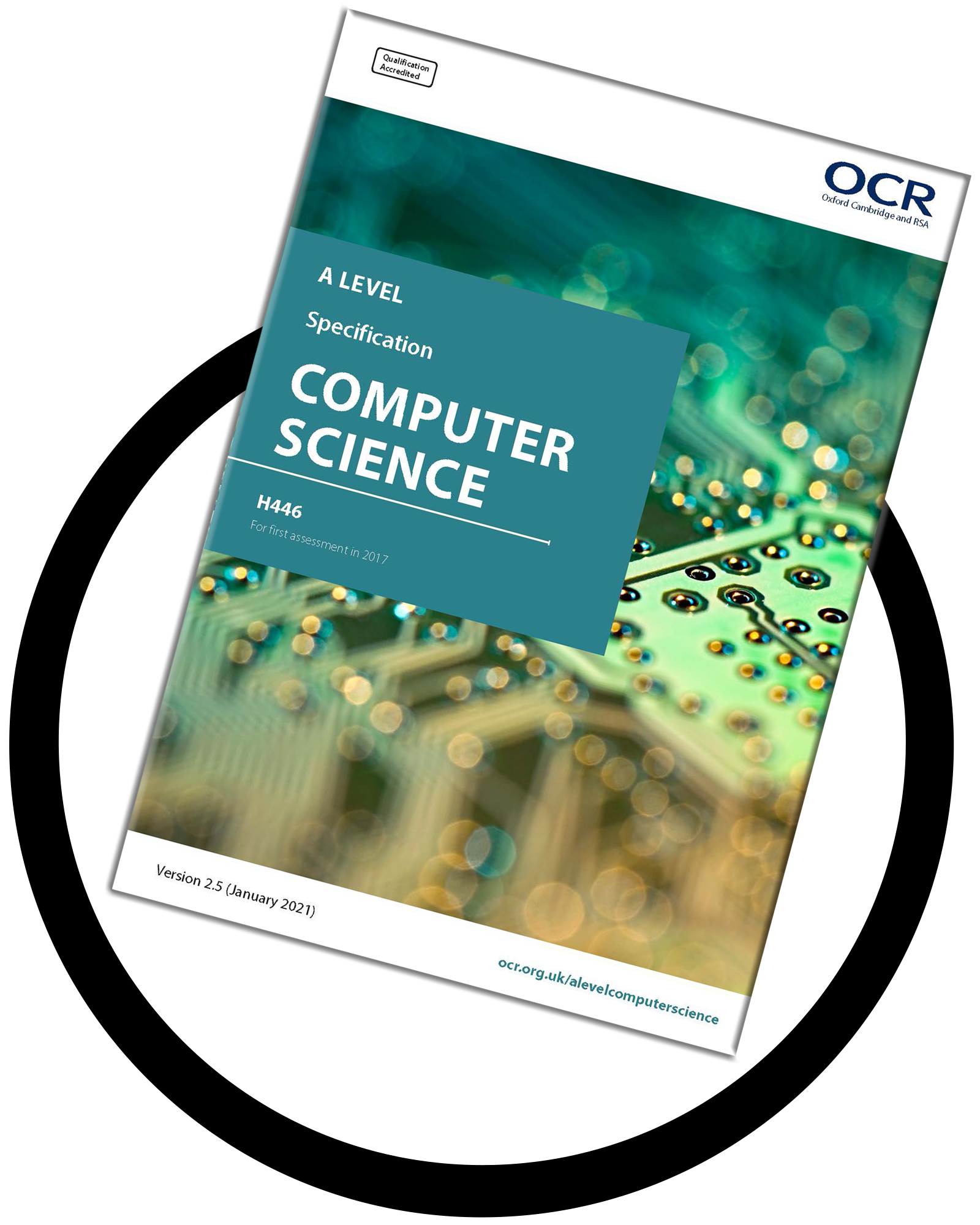
Board: OCR
Course Code: H446
Click the image on the right to download the full course specification.
Assessment Format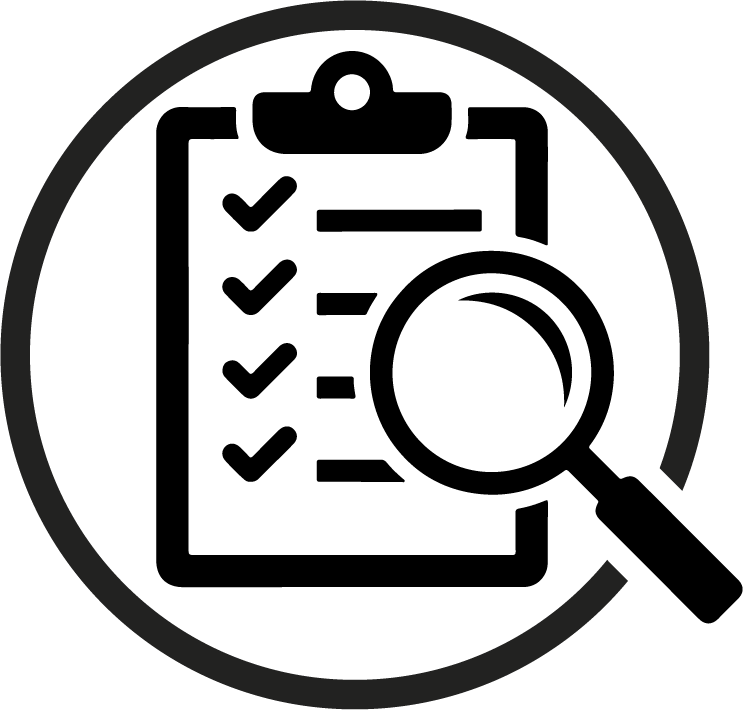
Paper 1: Computer Systems
Written examination (2 hrs 30mins) consisting of a mix of questions including short answer, longer answer and some higher tariff questions that will test the quality of extended responses. This paper is worth 40% of the overall marks for this qualification.
Paper 2: Algorithms and Programming
Written examination (2 hrs 30mins) consisting of a mix of questions including short answer, longer answer and some higher tariff questions that will test the quality of written responses via a level of response mark scheme. This paper is worth 40% of the overall marks for this qualification.
Programming Project
This is a non-exam assessment. Students will be expected to analyse, design, develop, test, evaluate and document a program written in a suitable programming language. This project is worth 20% of the overall marks for this qualification.
Course Entry Requirements
This course requires a Grade 6 or above in GCSE Computer Science plus Grade 6 or above in GSCE Mathematics and Grade 6 or above in GCSE English.
Employability Skills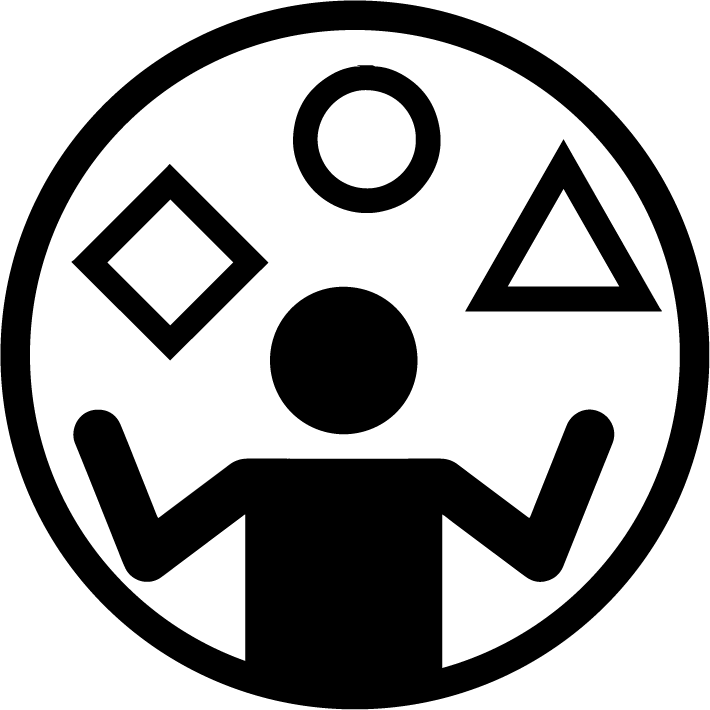
Employability Skills are essential skills, personal qualities and values that will enable you to thrive in any workplace. Along with good technical understanding and subject knowledge, employers often outline a set of skills that they want from an employee.
This course will help you to develop the following employability skills:
- Collaborative working
- Comprehensive IT knowledge
- Numeracy and analytical skills
- Problem solving
- Project planning
- Software development and programming skills
Next Steps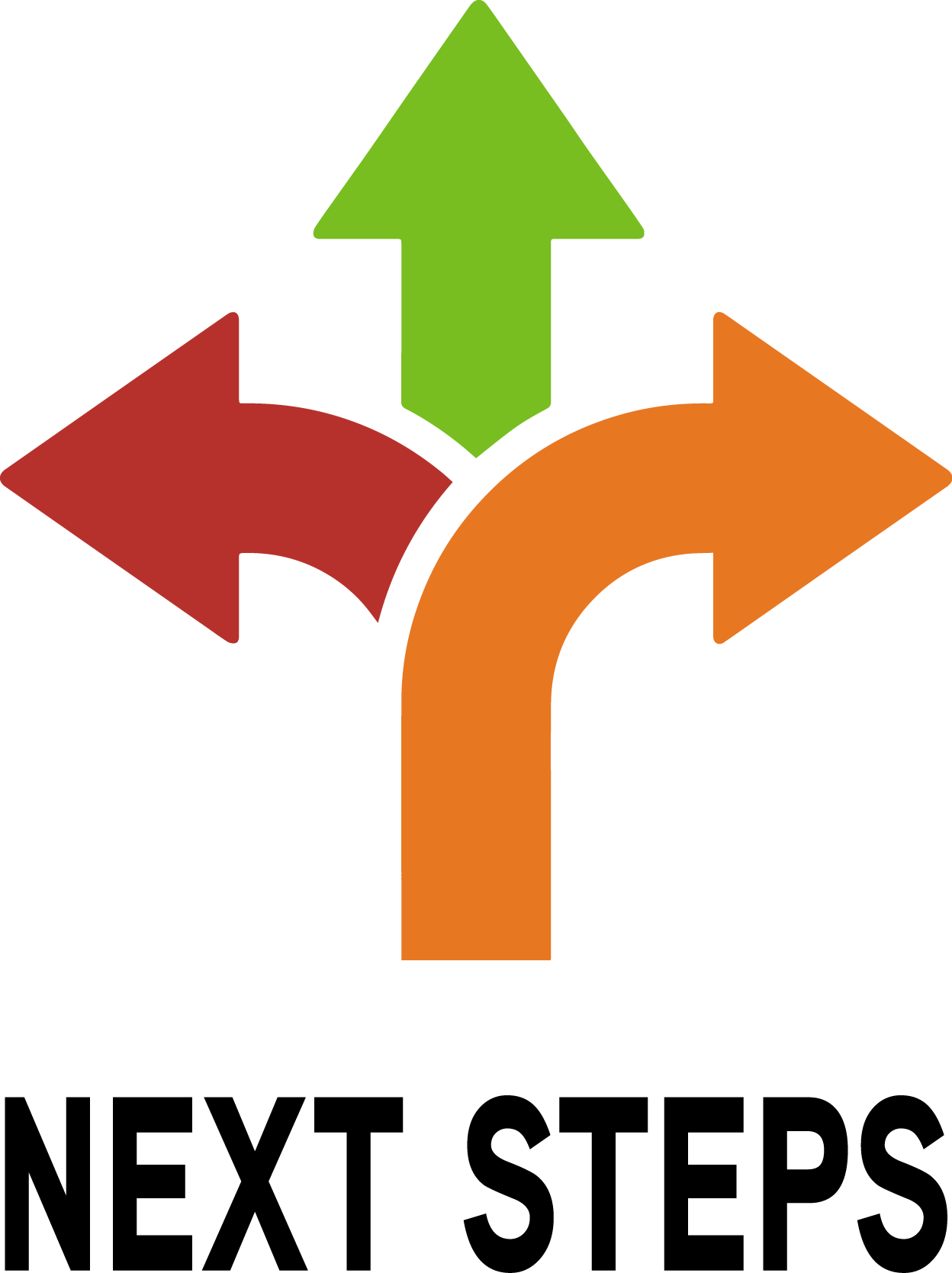
Many students go on to University to study a computing or computing-related degree. Furthermore, students may choose an apprenticeship degree scheme with some top UK businesses, such as PriceWaterhouseCoopers, GCHQ Cyberfirst, and BT CyberSecurity.
Nowadays, Computer Science impacts almost every sector in society.
10 Possible Careers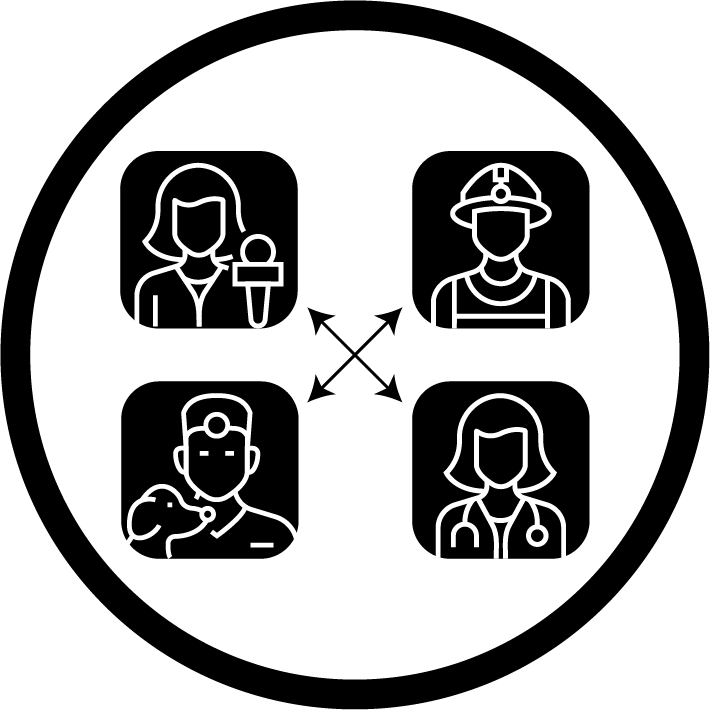
- Artificial Intelligence and Robotics
- Computer Forensics
- Computer Game Development
- Creative Computing
- Ethical Hacking
- Intelligent Systems
- Interactive Media
- Networking and Security
- Software Engineering
- Web Technologies
Student Profile: Ryan
 Ryan's subjects
Ryan's subjects
A Level Accounting
A Level Computer Science,
A Level Economics
Core Sport
I chose Warlingham because it was near to where I live and I already knew the staff. I found it helpful to hear from former students who came in to answer our questions about their careers since leaving Warlingham. When I leave, I would like to go on to university or to do an apprenticeship.








